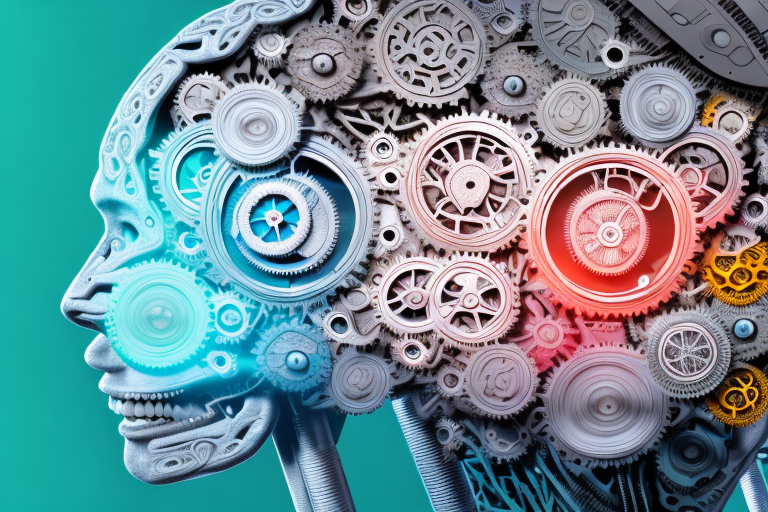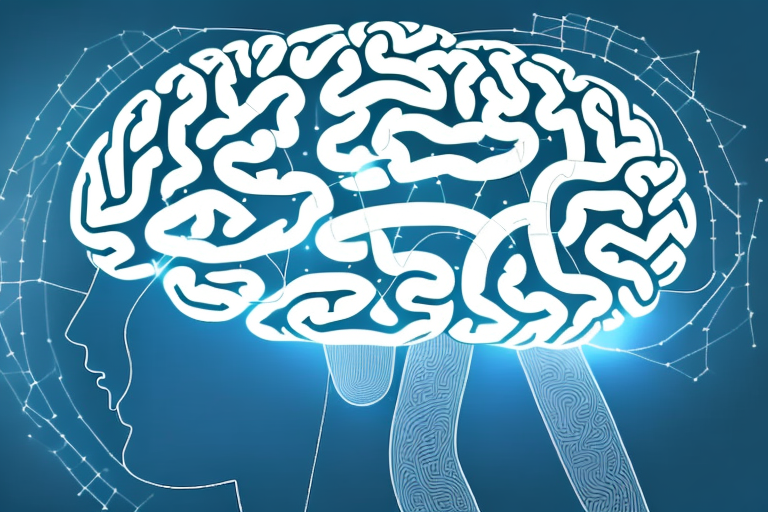Unlocking Empathy: Harnessing the Power of Emotional Awareness
In a world increasingly defined by rapid communication and digital interactions, the essence of human connection seems more vital than ever. Empathy, the ability to understand and share the feelings of another, acts as a bridge that unites individuals in a tapestry of shared experiences. When, a couple of weeks ago, I received a visual on LinkedIn from a good friend (you know who you are ;-)) on the naming of emotions and the subtle nuances that exist between them, this article slowly started to take form. It delves into the depths of empathy and emotional awareness, exploring how they can be harnessed to foster personal growth, improve relationships, and promote overall mental well-being. Enjoy!
Understanding Empathy: A Deep Dive
To truly appreciate the nuances of empathy, we must first understand its definition and psychological implications. Empathy is something completely different than feeling sorry for someone; it involves recognizing their emotional state and connecting with it on a profound level.
The Definition of Empathy
Empathy can be conceptualized as the ability to perceive, and respond to, the emotions of others. It encompasses two key elements: cognitive empathy, which involves understanding another person's perspective, and emotional empathy, which is the ability to physically feel their emotions. This dual approach allows us to build meaningful connections, enhancing our interactions and relationships. In addition, empathy can manifest in various forms, such as compassion, sympathy, and even altruism, each contributing to the richness of human experience. By engaging in empathetic practices, we not only foster our own emotional intelligence but also create a supportive environment that encourages vulnerability and openness among peers.
The Psychological Perspective of Empathy
From a psychological standpoint, empathy is often discussed in the context of social cognition. It helps us navigate our social environments by enabling us to interpret and evaluate the emotional currents that flow among individuals. Research has shown that empathic individuals tend to have stronger social connections and exhibit higher levels of prosocial behavior, contributing positively to their communities. Furthermore, empathy can play a crucial role in conflict resolution, as understanding differing perspectives is essential for finding common ground. Studies suggest that individuals who practice empathy are more adept at de-escalating tense situations, as they can articulate the feelings of others and facilitate a dialogue that respects all viewpoints. This skill not only enhances personal relationships but also has broader implications in workplaces and communities, where collaborative efforts are often required to address complex issues.
Moreover, the development of empathy is influenced by various factors, including upbringing, culture, and personal experiences. Children who are raised in nurturing environments, where emotional expression is encouraged, tend to develop stronger empathic abilities. Conversely, those who experience neglect or trauma may struggle with empathy, highlighting the importance of supportive relationships in fostering this vital skill. Understanding the roots of empathy can also inform educational practices, as teaching children to recognize and respond to emotions can lead to healthier social interactions and improved emotional well-being throughout their lives.
The Importance of Emotional Awareness
Emotional awareness, the ability to recognize, verbalize, and understand one’s own emotions and those of others, is vital to empathic engagement. By naming emotions, we can more easily recognize them in ourselves and in others, enhancing the depth of our interactions.
Emotional Awareness and Personal Relationships
In personal relationships, emotional awareness lays the foundation for genuine communication. When individuals are attuned to their feelings and can articulate them, they are more capable of expressing themselves authentically. This openness encourages partners, friends, and family members to do the same, resulting in stronger bonds forged through mutual understanding.
Moreover, emotional awareness allows individuals to navigate the complexities of their emotions, preventing misunderstandings and fostering a healthy environment for growth. In relationships where emotional awareness is present, conflicts can be approached with empathy and compassion rather than defensiveness, facilitating effective resolution. This practice not only strengthens relationships but also enhances emotional intelligence, enabling individuals to better manage their feelings and reactions in various situations. As a result, emotional awareness becomes a catalyst for deeper connections, allowing individuals to share vulnerabilities and support each other through life's challenges.
Additionally, emotional awareness can significantly improve conflict resolution skills. When individuals recognize their emotional triggers and can verbalize their feelings, they can engage in discussions that prioritize understanding over winning an argument. This shift in perspective can transform potentially damaging confrontations into opportunities for growth and healing, ultimately leading to more resilient relationships.
Emotional Awareness in the Workplace
The workplace, too, thrives on emotional awareness. Organizations that cultivate an emotionally aware culture tend to experience higher levels of employee satisfaction, collaboration, and productivity. When leaders demonstrate empathy and emotional insight, they foster a sense of belonging and value among their teams.
Furthermore, emotional awareness can mitigate burnout and enhance overall workplace morale. Employees who feel recognized and understood are more likely to engage with their tasks and contribute positively to their work environment, driving collective success. This sense of emotional safety encourages creativity and innovation, as team members feel empowered to share their ideas without fear of judgment. A workplace that prioritizes emotional awareness not only attracts talent but also retains it, as employees are more likely to stay in an environment where they feel valued and understood.
Moreover, training programs that focus on developing emotional awareness can lead to improved leadership skills. Leaders who are emotionally aware can better navigate the complexities of team dynamics, making them more effective in managing diverse groups. By recognizing the emotional needs of their employees and helping them articulate their feelings, these leaders can tailor their approach to motivate and inspire, fostering a culture of trust and collaboration that ultimately benefits the entire organization.
The Connection Between Empathy and Emotional Awareness
The relationship between empathy and emotional awareness is mutual and empowering. Emotional awareness enriches empathic abilities, while empathy in turn strengthens emotional understanding, creating a virtuous cycle.
How Emotional Awareness Fuels Empathy
When individuals are emotionally aware and can verbalize their feelings, they can better identify the emotional states of those around them. This awareness equips them to respond more empathetically, fostering deeper connections. It encourages active listening and validation of feelings, assuring others that their experiences are acknowledged and valued.
By enhancing emotional awareness, we lay the groundwork for empathic interactions, enabling us to engage more fully in the experiences of others. This engagement not only strengthens relationships but also supports collective emotional health. Furthermore, emotional awareness allows individuals to reflect on their own feelings, creating a deeper understanding of how personal emotions can influence interactions with others. This self-reflection is crucial, as it helps individuals recognize their biases and triggers, leading to more thoughtful and considerate responses in social situations.
The Interplay of Empathy and Emotional Awareness
The interplay between empathy and emotional awareness can be transformative. Individuals who practice both are better positioned to respond to emotional cues and handle conflict constructively. They can recognize when someone feels overwhelmed or in distress, prompting them to offer support rather than judgment.
This dynamic is essential in forming resilient communities, workplaces, and relationships. As individuals develop these skills, they contribute to a culture of understanding and compassion, creating spaces where emotional expression is welcomed and encouraged. Moreover, this synergy can have far-reaching effects beyond personal relationships; it can influence organizational culture and societal norms. In workplaces where empathy and emotional awareness are prioritized, employees are more likely to feel valued and understood, leading to increased morale and productivity. Such environments not only enhance collaboration but also foster innovation, as individuals feel safe to express their ideas and emotions without fear of dismissal or ridicule.
Techniques to Enhance Empathy and Emotional Awareness
While some individuals naturally exhibit higher levels of empathy and emotional awareness, these traits can be cultivated through dedicated practice and techniques. Below are several effective strategies.
Mindfulness Practices for Emotional Awareness
Mindfulness techniques, such as meditation and focused breathing, can significantly enhance emotional awareness. By encouraging individuals to be present with their thoughts and feelings, mindfulness practices allow for a deeper connection to one’s own emotional state.
Furthermore, mindfulness helps individuals recognize the emotions of others without being overwhelmed. This clarity fosters a compassionate awareness that bolsters empathic responses and promotes emotional intelligence. Regular practice can also lead to improved emotional regulation, enabling individuals to respond to challenging situations with greater calmness and understanding. As one becomes more attuned to their own emotional landscape, they often find it easier to navigate the emotional currents of those around them, creating a more harmonious social environment.
Empathy-Building Exercises
Engaging in empathy-building exercises can provide practical experience in connecting with others. Activities like role-playing, where individuals take on the perspectives of others, can help break down barriers of understanding and cultivate compassion.
Additionally, journaling about emotional experiences—both personal and observed—encourages reflection and can deepen insights. Sharing these reflections with others can further enhance collective emotional understanding, leading to richer discussions and shared experiences. Group activities, such as community service or volunteering, can also serve as powerful empathy-building exercises. By working alongside individuals from diverse backgrounds, participants can gain firsthand insights into the challenges and triumphs of others, fostering a sense of shared humanity and interconnectedness. This not only enhances empathy but also reinforces the importance of community and support in emotional well-being.
The Impact of Empathy and Emotional Awareness on Mental Health
Empathy and emotional awareness are not merely tools for social engagement; they also play a crucial role in maintaining and enhancing mental health. Their influence reverberates through our interpersonal relationships and collective psychological well-being.
Empathy, Emotional Awareness, and Stress Management
Empathy and emotional awareness can serve as effective stress management tools. When individuals understand their feelings and the feelings of others, they develop coping strategies that promote emotional regulation.
This understanding fosters resilience, allowing individuals to navigate stressors with greater ease. Additionally, when we empathize with others, it creates a sense of community. Feeling connected reduces feelings of isolation and enhances support systems, alleviating stress in challenging times.
Moreover, the practice of empathy can lead to healthier communication patterns. When we are aware of our emotions and the emotions of those around us, we are more likely to engage in open and honest conversations. This transparency can prevent misunderstandings and conflicts that often contribute to stress. By fostering an environment where feelings are acknowledged and validated, we create a safe space for individuals to express their concerns, thereby mitigating the potential for emotional overwhelm.
The Role of Empathy in Overcoming Anxiety and Depression
Empathy plays a vital role in addressing mental health issues such as anxiety and depression. Individuals who practice empathy often report feeling a greater sense of purpose and belonging, which counteracts feelings of loneliness and despair.
By empathizing with oneself and practicing self-compassion, individuals can confront negative thoughts and emotions with understanding rather than judgment. This supportive internal dialogue creates a buffer against anxiety and depression, reinforcing a healthier, more positive mindset.
Furthermore, engaging in empathetic practices can lead to a cycle of positivity that benefits not only the individual but also those around them. When one person demonstrates empathy, it can inspire others to do the same, creating a ripple effect that enhances the emotional climate of a group. This collective emotional intelligence can be particularly beneficial in settings such as schools and workplaces, where a culture of empathy can lead to improved collaboration, increased morale, and overall enhanced mental health for everyone involved. By cultivating an empathetic environment, we can collectively combat the stigma surrounding mental health issues and encourage open discussions that promote healing and understanding.
As you reflect on the transformative power of empathy and emotional awareness in your personal and professional life, consider taking the next step with FabCore Consulting. Our expertise in leadership development, agile transformation, and communication excellence is designed to empower you and your organization to harness these skills for success. Join our community of visionary leaders and register for our mailing list to stay informed about our empathetic, practical, and transformative workshops. Let's unlock your potential together.












